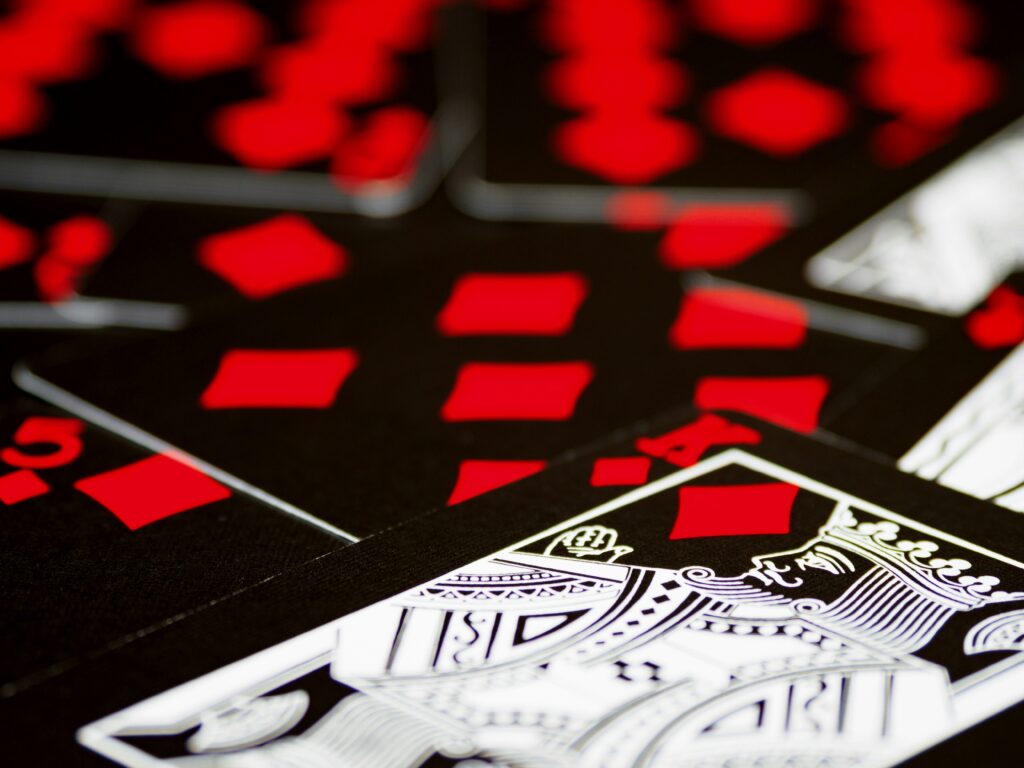Morning Prep: Data Over Coffee
The day starts long before the first whistle blows. Professional gamblers crack open stats like others sip coffee. It’s about information first—where the lines opened, where they’ve moved overnight, and why. Sharp money leaves footprints. Injury updates, unexpected roster shifts, and weather changes all leave marks if you know where to look.
Pattern recognition isn’t optional—it’s the job. Trends don’t guarantee outcomes, but they hint at value, and value is how you survive. You’re not betting on teams, you’re betting on numbers. If last night’s market shifted on low volume, it might mean nothing. Or everything. Getting ahead of recreational bettors means staying one move quicker.
Before anything is wagered, bankroll strategy steps in. Daily allocations are cold and mechanical. No heat, no tilt. Everything gets sized based on edge, confidence, and long-term math. Downswings don’t feel good, but undisciplined bets feel worse.
Then come the tools. Odds aggregators like OddsJam or Action Network keep you synced across books. Custom software tracks your bets, models outcomes, and crunches numbers while you breathe. Tipster services? They exist—but relying on others for picks without understanding the why is a shortcut to nowhere.
Success starts before breakfast. It’s quiet, it’s focused, and it doesn’t make highlight reels. But skip this part and you’re just gambling.
Mid-Morning: Strategy Before Action
This is where things get filtered. After the morning blitz of numbers, it’s time to trim the fat. Professional gamblers don’t chase every opportunity—they zero in on the handful of plays that align with their edge. Narrowing down potential bets starts by eliminating noise: mismatched odds, volatile markets, or gut picks that don’t match the data. Less is more here.
Cross-analyzing matchups is a mix of metrics and pattern recognition. Whether it’s a lopsided pitching duel in baseball or a blackjack table with unusually soft dealers, this stage is about spotting vulnerabilities—and confirming them from more than one angle. Historical data, form sheets, betting splits, player psychology—it all gets weighed.
And above all: no tilt. Emotions are poison in the early stage. If a gamble from yesterday’s slate didn’t pan out, tough. You don’t double down to break even, and you don’t force a pick because it “feels right.” This phase is surgical. Facts on the table. Focus locked. Let the math—not the mood—make the call.
Early Afternoon: Execution Time
This is the part of the day when all the prep meets live action. Bets get placed, but not blindly. Professionals don’t just fire off wagers across platforms—they zero in on where the odds give them even the smallest slice of edge. Shopping lines matters. The difference between -105 and -110 adds up over time.
At this stage, everything is fluid. Value bets don’t sit still for long. If a line starts to swing hard, you don’t panic—you calculate. Is the move driven by sharp action or public hype? Are your earlier reads holding up, or is it time to pivot? Constant monitoring of odds boards is standard. Alerts are set. Adjustments are made.
Risk is always part of the game, but the pros manage it ruthlessly. No oversized bets chasing a hunch. No doubling down out of ego. If a bet starts looking shaky, you hedge or step back. Live betting is an artform when done right, but it’s no place for emotional trading. The best play is often the one you don’t make.
Every click is calculated. Not every hour is explosive, but every minute counts.
Late Afternoon: Watching the Markets
Once the bets are placed, the job isn’t over—it just shifts gears. As games kick off, a professional gambler becomes part analyst, part air-traffic controller. Monitoring plays is constant. Line movement, player performance, weather shifts, or even subtle pace changes need to be tracked in real time. It’s not about staring at screens blindly—it’s about spotting anything that could tip the balance.
Adjusting exposure mid-event? That’s where things get sharper. Are you over-leveraged on a game that’s turning sideways? Time to hedge or scale back. Conversely, when an opportunity swings in your favor—like a live total that hasn’t caught up to a matchup’s tempo—doubling down can stretch an edge wider. But no move is automatic.
Knowing when to hold and when to fold isn’t instinct—it’s discipline. You lean on data, not adrenaline. Reactive gamblers chase losses. The pros manage risk on the fly, with a cool head and crisp reasoning. Whether you’re locking in partial profit or taking a calculated second swing, staying in control is the name of the game.
Evening: Momentum or Recovery
The evening isn’t about celebration or self-pity—it’s about post-mortem. Whether the day ends up or down, every serious gambler spends the night reviewing results with a cold eye. Wins aren’t validation, and losses aren’t excuses. You pull up the data, look at each play in context, and ask the hard questions: Did you have the edge? Were the odds mispriced—or were you? Bias kills bankrolls faster than bad luck.
Logging matters. Keeping a tight record of bets, outcomes, and reasoning is how you learn what’s working and what’s just noise. Are you sharp on underdog moneylines but bleeding on parlays? Does your real edge lie in mid-tier tennis markets, not the NFL spreads you love? Patterns emerge when you’re honest enough to look.
But stats alone don’t carry you through cold runs. Streaks happen. Remaining mentally steady—especially during a downswing—is part of the job. That may mean taking a break, scaling back stakes, or simply reminding yourself that the process matters more than the outcome. There’s no room for tilt. You reset, recalibrate, and line up for another round. No drama, no delusion—just discipline.
Night: Education and Maintenance
When the bets are placed and the games are done, the real pros aren’t heading to bed just yet. Night is when the grind turns inward—time to sharpen the edge. Studying advanced strategies isn’t glam, but it’s what keeps players sharp. That could mean parsing hand history from poker sites, decoding new betting models, or diving into obscure game mechanics to find overlooked angles. Whatever the format, the top gamblers treat learning like part of the job, not an optional upgrade.
This is also when the stronger networks get built. Message boards. Private Discords. Late-night calls with syndicate members mapping tomorrow’s angles. The conversations aren’t flashy, but they’re the difference between solo shots and well-informed plays. No ego, just data and discipline.
And then there’s this: knowing when to step away. Turning off the phone, skipping that tempting parlay, getting some damn sleep. Discipline isn’t only about what bets you make—it’s about the ones you intentionally don’t. After hours is where burnout brews or gets managed. The players who last know that tomorrow only works if tonight stays clean.
Keys to Long-Term Success
Success in professional gambling isn’t about riding hot streaks—it’s about consistency, discipline, and the long game. Here’s what separates those who last from those who flame out:
Mindset Over Luck
Luck plays a role in the short term, but over time, it’s mindset and discipline that keep the house edge tilted in your favor.
- Develop a system and stick to it—even when variance hits
- Focus on making correct decisions, not chasing outcomes
- Learn to embrace slow, steady growth over dramatic wins
Avoiding the Hype Trap
Every gambler faces emotional and situational hype: the buzz of a ‘can’t-miss tip,’ the urge to go all-in after a win, or the pressure to recover after a tough loss.
- Tune out social noise and short-term chatter
- Don’t bet just because “everyone else is on it”
- Create a decision-making buffer: 5-minute rule before placing a bet
Building Multiple Revenue Streams
Being a pro gambler today means more than placing sharp bets—you need hustle beyond the sportsbook. Diversifying income helps manage dry spells and builds financial resilience.
- Streaming: Share betting strategy and insight live to build community and monetization through ads or subs
- Coaching: Offer personalized mentorship to beginners or intermediate bettors
- Affiliate Content: Partner with platforms to create educational or review-based betting content that earns commissions
When your entire income isn’t dependent on the day’s performance, it frees you to make smarter, less desperate decisions.
It’s not about any single day of wins or losses. It’s the combination of emotional control, strategic planning, and entrepreneurial thinking that carves a sustainable path in professional gambling.
Deeper Dive: How the Digital Age Changed the Game
The modern gambler isn’t just leaning over a smoky craps table anymore—they’re sitting behind multiple screens, tracking bets as fast as they’re made. Streaming platforms and real-time analytics have pulled betting out of the backroom and into the mainstream. With live-streamed games, in-play betting, and instant data feeds, players are making sharper, faster calls than ever before.
But speed only matters if you can stay ahead. Platforms now offer micro-betting—wagering on outcomes as granular as the next pitch or point. On good days, it’s a goldmine of edge and arbitrage. On bad days, it’s a quick way to bleed. That’s where analytics come in. The pros are using tools that scrape statistics, flag inefficiencies, and model outcomes in real time.
Online platforms have also overtaken traditional venues in terms of volume and efficiency. No travel, no lines, no having to sweet-talk a bookmaker. It’s instant, it’s accessible, and—for those who treat it with discipline—it’s scalable. Still, the trade-off is clear: digital betting requires constant input and constant vigilance.
Want even more insight into how pros are adapting? Check out Bet Vlog Hub.
Final Take
The grind is real—but so is the freedom. Professional gambling strips away the gloss quickly. It’s not Vegas lights and champagne. It’s spreadsheets, odds movement, and calculated risk. There are no guaranteed paydays—just edges, and they’re measured in tenths of a percent.
This isn’t guesswork. It’s a business. Winners treat it like one. That means knowing your numbers better than your instincts, showing restraint when emotion kicks in, and waking up the next day ready to do it all again, win or lose. You manage a bankroll the way a business manages cash flow—tight margins, deliberate bets, and risk controls baked into the system.
What separates the pros from the gamblers? Discipline. Strategy. A relentless appetite for learning. The edge isn’t just in your pick—it’s in how you manage yourself, how you adapt to the market, and how you don’t flinch when variance shakes the table. Freedom comes, but only when you’ve earned it through consistency and craft.


 As both a co-founder and key contributor at BetVlogHub. Auritha drives the platform’s vision of blending betting insights with cutting-edge technology. Her work focuses on innovation, user experience, and building resources that empower readers to make smarter betting decisions.
As both a co-founder and key contributor at BetVlogHub. Auritha drives the platform’s vision of blending betting insights with cutting-edge technology. Her work focuses on innovation, user experience, and building resources that empower readers to make smarter betting decisions.

